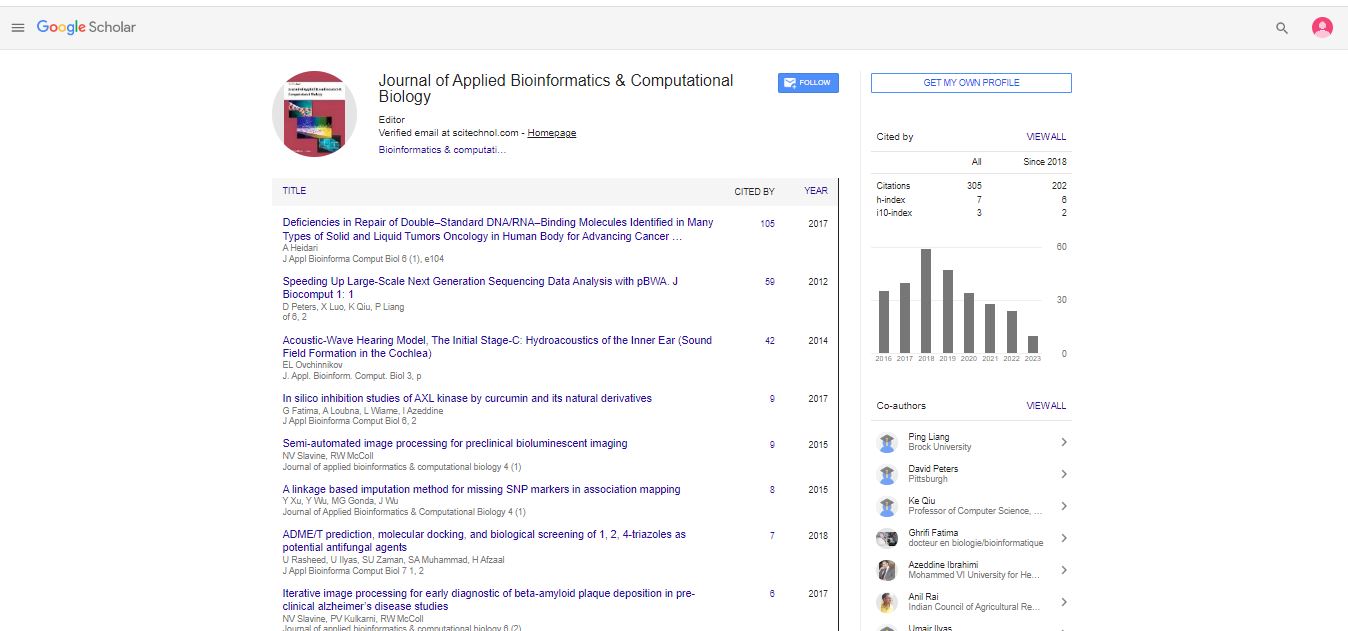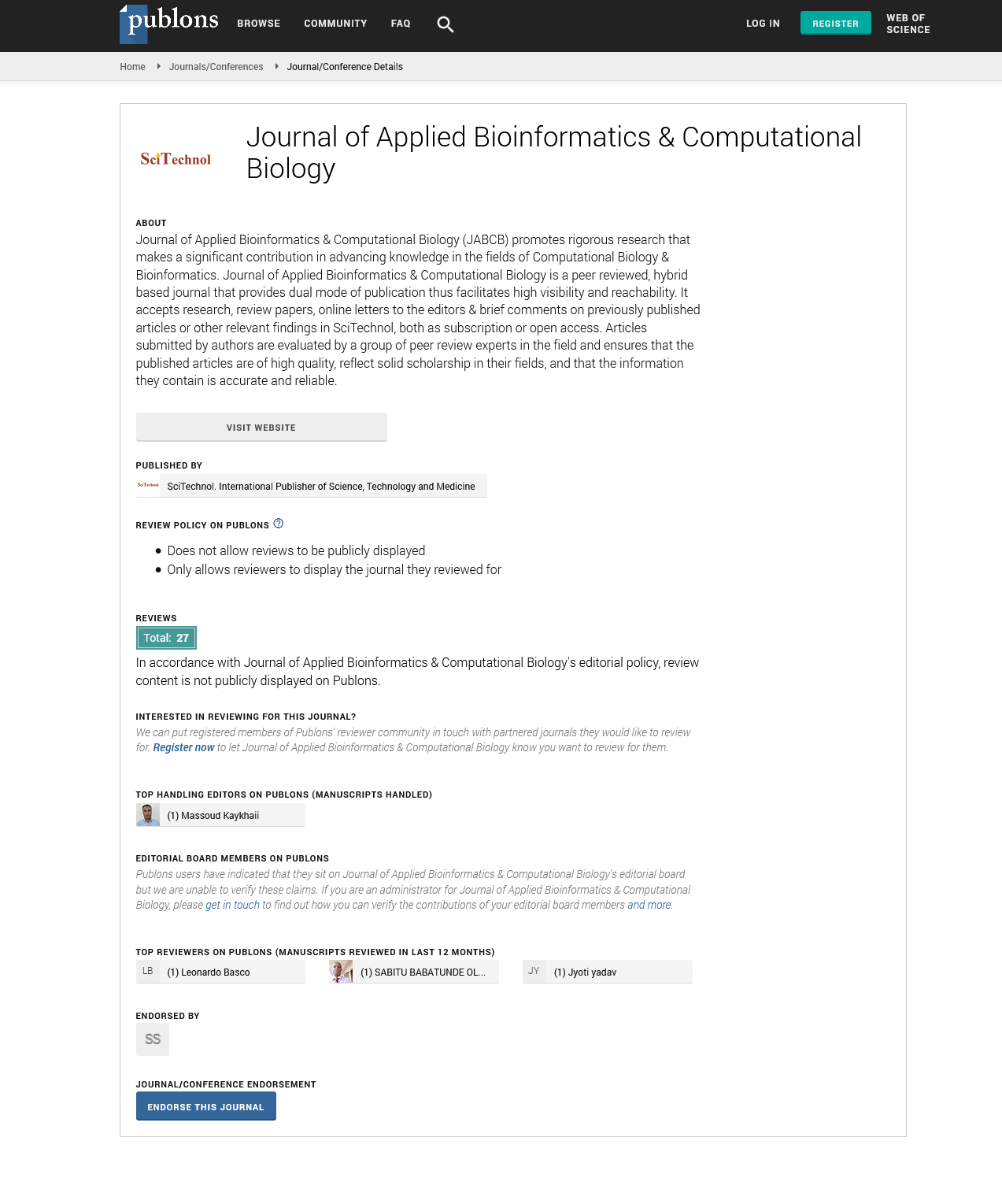Research Article, J Appl Bioinform Comput Biol Vol: 3 Issue: 1
Natural Versus Synthetic Inhibition of the PI3K Pathway Causing Over-Expression and Reduced Apoptosis to HER2 Leading to ER+/HER2+ Breast Cancer
| Amlan Chakraborty*, Apoorv Gupta, and Pranav Patni | |
| Amity Institute of Biotechnology, Amity University, Noida, India | |
| Corresponding author : Amlan Chakraborty Amity Institute of Biotechnology, J3 Block, Amity University, Sector 125, Noida- 201303, UP, India Tel: +91-7838829601; Email: amlan.chakroborty@gmail.com |
|
| Received: December 18, 2013 Accepted: March 29, 2014 Published: April 04, 2014 | |
| Citation: Chakraborty A, Gupta A, Patni P (2014) Natural Versus Synthetic Inhibition of the PI3K Pathway Causing Over-Expression and Reduced Apoptosis to HER2 Leading to ER+/HER2+ Breast Cancer. J Appl Bioinform Comput Biol 3:1. doi:10.4172/2329-9533.1000107 |
Abstract
Natural Versus Synthetic Inhibition of the PI3K Pathway Causing Over-Expression and Reduced Apoptosis to HER2 Leading to ER+/HER2+ Breast Cancer
Amplification or over-expression of the HER2 gene occurs in approximately 30% of breast cancers. HER2 proteins have been shown to form clusters in cell membranes that may play a role in tumorigenesis. It has been found that patients with ER+ (Estrogen receptor positive)/HER2+ compared with ER-/HER2+ breast cancers may actually benefit more from drugs that inhibit the PI3K/AKT molecular pathway. The PI3K/AKT/mTOR pathway is an intracellular signalling pathway important in apoptosis and hence cancer. In case of ER+/HER2+ breast cancer this pathway is overactive, thus reducing apoptosis and allowing proliferation. Various natural compounds, including epigallocatechin gallate (EGCG), caffeine, curcumin, resveratrol and Taxol, have been found to inhibit PI3K pathway. Also, synthetic inhibitors like Wortmanin and LY294002 has been found in inhibiting the PI3K pathway.

